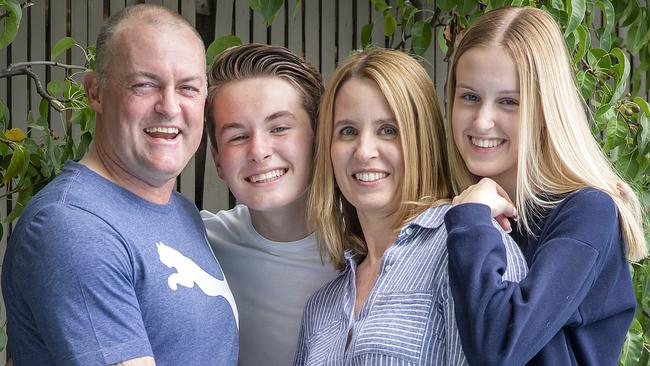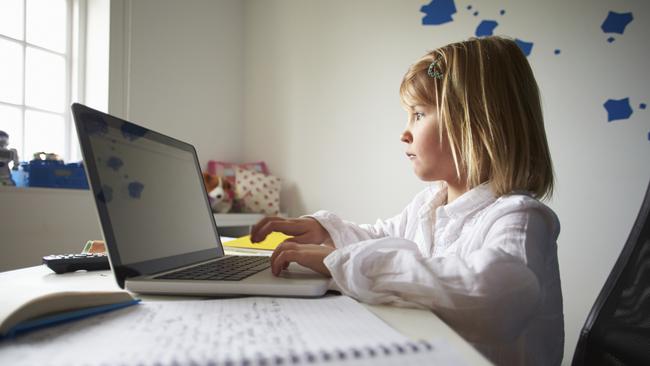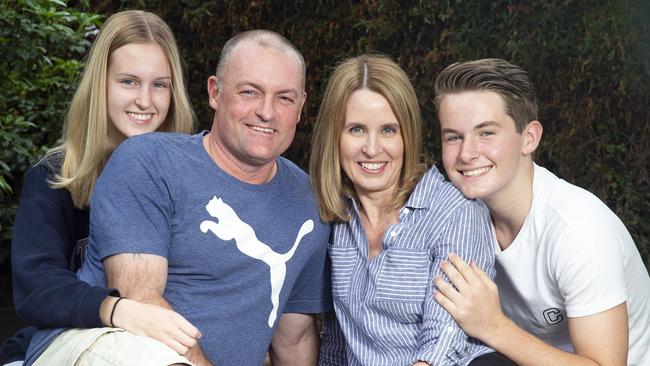Aussies kids plagued by rising rates of mental health issues
Getting kids to eat better and exercise more has been a growing campaign for years now, but a national snapshot of Australian children shows the bigger concern is the rising rates of bullying, mental disorders and family violence.

News
Don't miss out on the headlines from News . Followed categories will be added to My News.
Aussie kids are happy and healthy, but plagued by rising rates of bullying, mental disorders and family violence, a new national snapshot shows.
Children from across the country are not eating enough vegetables or getting enough
exercise.
And one in four is exposed to unwanted content online, according to The Australian Institute of Health and Welfare 2019 Australian Children report.
The research also shows one third of kids as young as eight are on social media. Children aged five to 14 spend 123 minutes a day in front of screens, but only 3.5 minutes of this is for homework.
One in five 10-year-olds is bullied weekly and 14 per cent has a mental disorder such as ADHD and anxiety.
Boys are 1.5 times more likely to suffer from mental disorders than girls and have much higher rates of conduct problems. However, girls are more anxious.
The data, collected from dozens of national sources, also shows one in four children is overweight or obese and 40 per cent of kids consume soft drinks at least once a week.
Despite this, 97 per cent of children have someone to talk to if they have a problem and 91 per cent say they feel safe in their neighbourhood.

“From an early age, most Australian children have the foundations to support good health and wellbeing as they grow up,” AIHW spokeswoman Louise York said.
Figures singled out by the AIHW as concerning include the fact that only four per cent of children eat enough vegetables and only one quarter do the recommended 60 minutes of physical activity each day.
The report shows the circumstances of children vary greatly depending on where they live, their family functioning and socio-economic status.
For instance, more than one third of children who have more than one family violence substantiations are from low socio-economic backgrounds, compared to six per cent at the highest socio-economic group.

“In particular, it is important to learn more about how certain groups of children are faring,
including those with a disability, those from culturally or linguistically diverse backgrounds, and those who identify as lesbian, gay, bisexual, trans and gender diverse, or children who have intersex variations,” Ms York said.
Children from indigenous backgrounds don’t fare as well in many areas, but progress is being made, particularly in education.
The report was last issued in 2012.
HOMEGROWN WORRIES
Kids and young teens are more concerned about their families than terrorism, war and the environment.
Two thirds worry about their parents losing their jobs, getting hurt or getting sick, a new study of 3000 children aged 10-13 has found.
Data from the Growing Up In Australia Longitudinal Study of Australian Children shows more than half of all 10- and 11-year-olds are worried about fighting in their family.
Researchers from the Australian Institute of Family Studies found kids are also worried about drugs, alcohol and school-related matters.

About four in 10 are worried about global issues such as terrorism and war and one third about the environment.
AIFS director Anne Hollonds said this age could be worrying for young people “as they learn to deal with changes in their bodies, friendships and moving from primary to secondary school”.
Alison Visser, 46, agreed with the importance of family in children’s lives.
The Balwyn North mother of Charlie, 17, and Liam, 14, said family members needed to support each other.
“It’s good to have the whole family as a support. It’s the number one thing kids turn to when there are problems,” she said.

